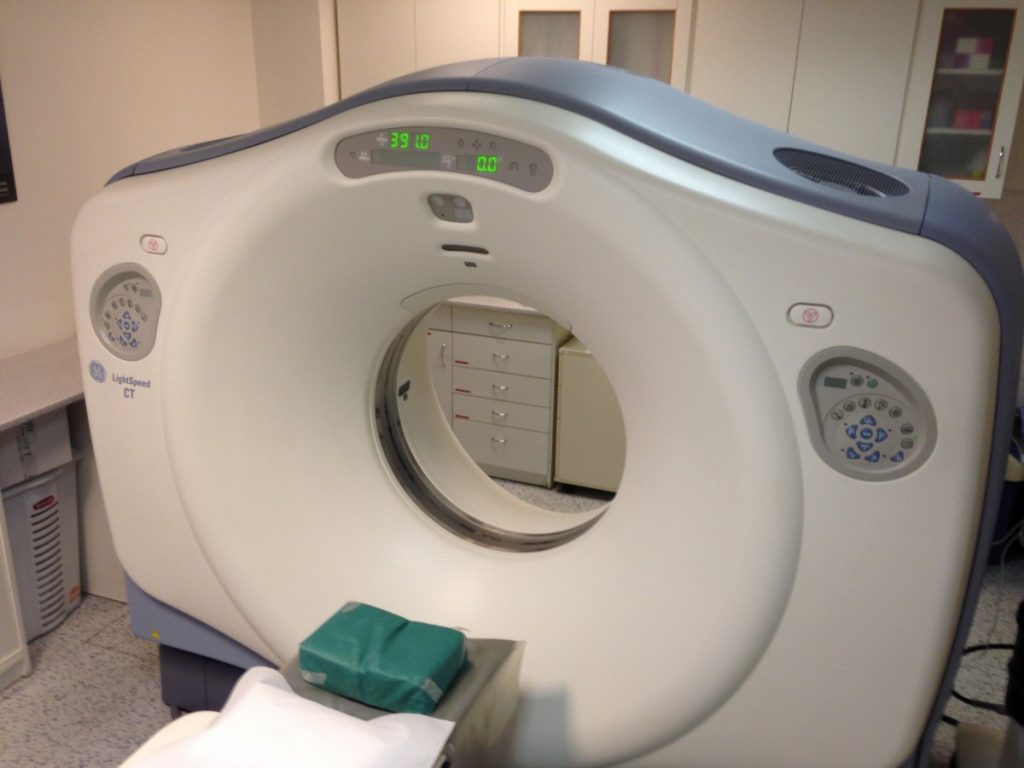Pelvic CT Scan
CT Scan of the Pelvis is a special test used primarily to examine the contents of the pelvic cavity for evidence of malignancy (cancer), haemorrhage (bleeding), and obstruction. It is usually performed in conjuction with abdominal CT.
How the Test is Performed
Pelvic CT scan is performed in the radiology department scanning room, with the patient lying flat (supine) on a CT table. The head is placed in a comfortable ‘docking pillow’ and the CT scanner gantry (donut) passess over and around the patient to perform the scan. The gantry travels over the patient from the iliac crest to the pubic symphysis to create the scan.
Pelvic CT scan is performed with oral and intravenous contrast. It is usually performed in conjunction with abdominal CT.
Medical Conditions and Symptoms
Pelvic CT scan as a sole investigation is used to define pelvic fractures following trauma, delineate specific pelvic organs such as the prostate or uterus, and in patients with chronic pelvic pain.
Test Results Explained
Pelvic CT scans are interpreted by an experienced radiologist.
Highly detailed information pertaining to solid and hollow organs in the pelvis; and the integrity of the bony pelvis can be attained. The presence of tumour, inflammation, haemorrhage, stones and infection can be ascertained.
Related Specialists
Related Procedures
- CT guided biopsy
Related Tests
Also Known As
- Pelvic CT
A: Use HealthEngine to find and book your next GP appointment. Click on the following locations to find a GP clinic in your state or territory.
This article is for informational purposes only and should not be taken as medical advice. If in doubt, HealthEngine recommends consulting with a registered health practitioner.
All content and media on the HealthEngine Blog is created and published online for informational purposes only. It is not intended to be a substitute for professional medical advice and should not be relied on as health or personal advice. Always seek the guidance of your doctor or other qualified health professional with any questions you may have regarding your health or a medical condition. Never disregard the advice of a medical professional, or delay in seeking it because of something you have read on this Website. If you think you may have a medical emergency, call your doctor, go to the nearest hospital emergency department, or call the emergency services immediately.








